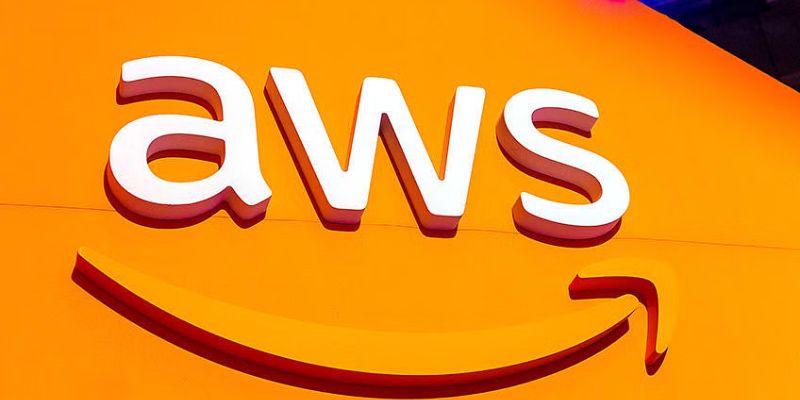
Cloud computing has become a major part of how businesses store data, run applications, and deliver services. The three biggest players in the cloud market are Amazon Web Services (AWS), Microsoft Azure, and Google Cloud Platform (GCP). Each of these platforms offers a wide range of services, including storage, networking, databases, machine learning, and more. While all three serve similar purposes, they differ in pricing, user experience, performance, and features. Enrolling in an AWS Course in Coimbatore can help you understand these differences clearly and build a solid foundation for a cloud computing career.
Market Share and Popularity
AWS is the oldest and most widely used cloud platform, holding the largest share of the cloud market. It was launched in 2006 and has had a strong head start in the industry. Azure, introduced by Microsoft in 2010, comes second in market share and is widely adopted by organizations already using Microsoft products. Google Cloud is newer compared to the other two but has grown rapidly due to Google’s expertise in data analytics and artificial intelligence. AWS is known for its wide customer base, while Azure and Google Cloud are becoming more popular in specific industries like finance, education, and startups.
Service Offerings
All three platforms offer similar services like virtual machines, storage solutions, networking tools, and cloud databases. However, AWS provides the largest number of services and has more features within each category. Prepare for an AWS Certification Exam to further understand its offerings. Azure integrates closely with Microsoft products such as Office 365, Windows Server, and Active Directory, which makes it a great choice for businesses already using those tools. Google Cloud focuses heavily on data analytics, artificial intelligence, and machine learning, with powerful tools like BigQuery and TensorFlow. Depending on your business needs, one platform may offer more suitable services than the others.
Pricing and Cost Structure
Pricing models for AWS, Azure, and Google Cloud can be complex. All follow a pay-as-you-go approach, but actual prices vary by service and region. AWS offers detailed pricing structures, Azure ties in Microsoft licenses, and Google Cloud provides sustained use discounts. An AWS Course in Madurai teaches how to use AWS pricing calculators and cost management tools, helping learners make smarter budgeting decisions when working with cloud solutions.
User Interface and Ease of Use
AWS offers a powerful but sometimes complex interface that can be overwhelming for beginners. Its dashboard has many features, and navigating through them requires some experience. Azure provides a more familiar interface, especially for users who are already comfortable with Microsoft tools. It’s designed to be more user-friendly and integrates smoothly with on-premise systems. Google Cloud offers a clean and simple interface with a focus on easy navigation and fast deployment. For developers and new users, Google Cloud may feel more intuitive, while AWS and Azure might require more learning at the start.
Performance and Global Reach
All three platforms have a large global network of data centers, but their coverage varies. AWS has the broadest global infrastructure with availability in more regions than any other provider. Azure follows closely with a strong global presence and many regional data centers. Google Cloud, although slightly behind in total regions, still offers excellent performance and reliability, especially for services requiring high-speed data processing. If global availability and low-latency services are important for your business, AWS and Azure may offer an advantage, though Google Cloud continues to expand quickly.
Security and Compliance
Security is vital in cloud computing. AWS offers encryption, identity management, and robust monitoring. Azure builds on Microsoft’s enterprise security, and Google Cloud emphasizes privacy. With an AWS Course in Pondicherry, you’ll learn how AWS handles compliance, data protection, and threat detection, making it easier to build secure and compliant cloud environments.
Integration with Tools and Ecosystems
Azure stands out when it comes to integration with Microsoft products. Businesses using tools like Microsoft Teams, Office 365, and Dynamics will find Azure to be a seamless addition. AWS, while not tied to a specific software ecosystem, supports a wide range of third-party integrations and is known for its flexibility. Google Cloud integrates well with open-source tools and is often preferred for cloud-native development and containerized applications using Kubernetes. Depending on your current technology stack, one platform may offer better compatibility and fewer challenges during migration or integration.
Support and Documentation
All three cloud providers offer comprehensive documentation and various levels of customer support. AWS has a vast community, detailed guides, and strong developer support. Azure offers support plans and resources tailored for businesses using Microsoft solutions. Google Cloud provides clear documentation and active community forums, especially for developers working on machine learning and AI projects. While all three provide technical help and learning resources, AWS’s mature ecosystem gives it a slight edge for deep learning and troubleshooting.
Certifications and Learning Paths
Each cloud provider offers certifications. AWS certifications are globally respected and widely sought after in the IT industry. Enrolling in an AWS Training in Tirupur is a strong step toward preparing for certifications like AWS Certified Solutions Architect or AWS Certified Developer, giving your cloud career a competitive edge.
AWS, Azure, and Google Cloud each offer powerful cloud services, but they differ in many ways. AWS leads in market share and has the most services and global reach. Azure is a great fit for organizations already invested in Microsoft technologies, offering strong integration and ease of use. Google Cloud is ideal for data analytics, machine learning, and cloud-native development. When choosing between them, it’s important to consider your project needs, budget, technical skills, and long-term goals. Understanding these key differences helps you make a smart decision about which cloud platform is the best fit for you or your business.
Also Check:
How Does AWS Compare to Other Cloud Providers Like Azure and Google Cloud?
